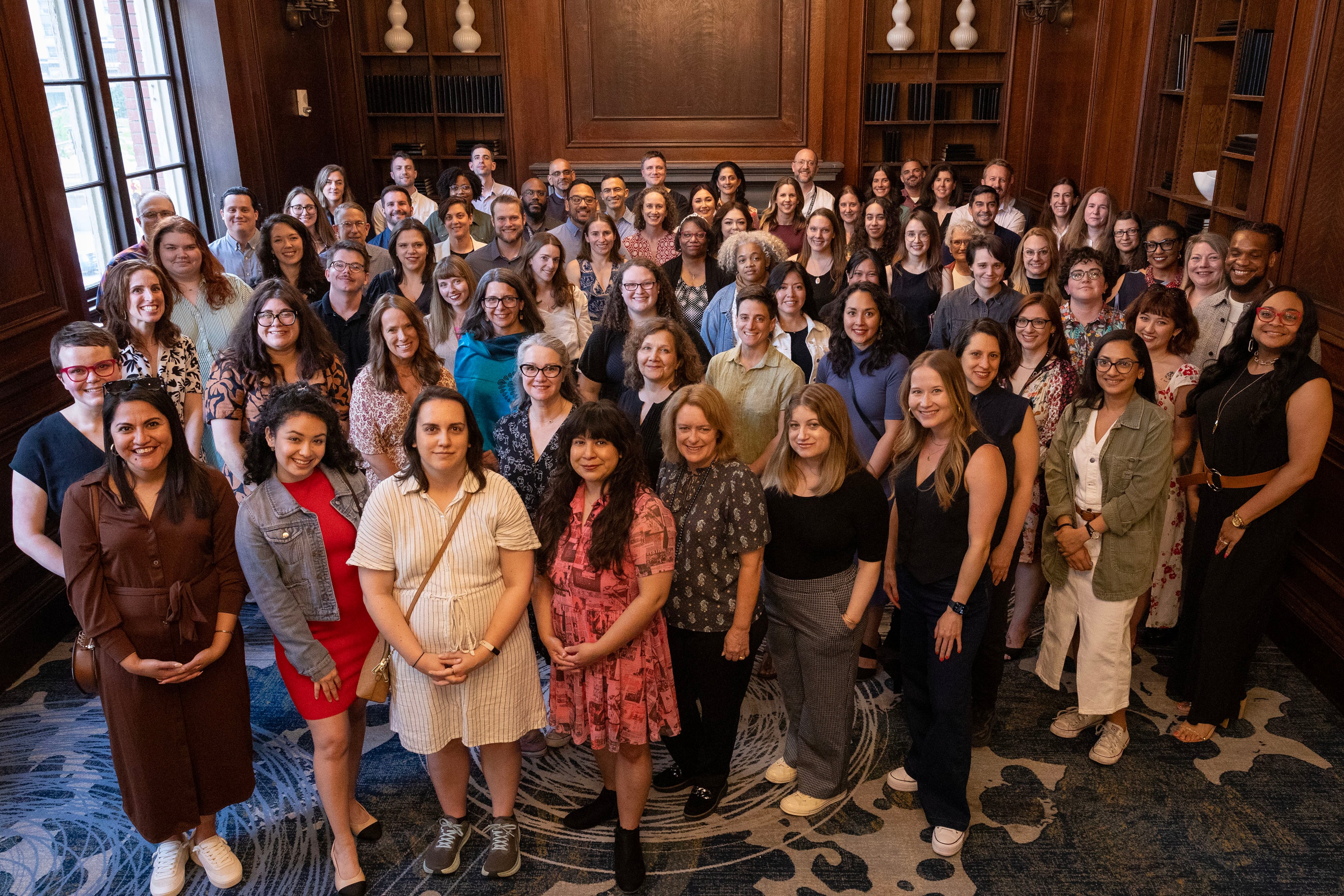Votebeat is a nonprofit news organization reporting on voting access and election administration across the U.S.
This news analysis was originally distributed in Votebeat’s free weekly newsletter. Sign up to get future editions, including the latest reporting from Votebeat bureaus and curated news from other publications, delivered to your inbox every Saturday.
I recently had the honor of giving the Hearst Lecture at Columbia Journalism School, where I spoke about something we think about constantly at Votebeat: public trust in the media. I’d love to share what I said — and hear what you think.
Public trust in journalism is at historic lows, threatening democracy, fueling misinformation, and contributing to a dangerous decline in civic engagement. But amid this dismal national picture, one critical detail often gets overlooked: Americans still trust their local newsrooms.
At Votebeat, we believe that the future of journalism lies not in flashier headlines or louder opinions, but in rigorous, transparent local policy reporting. It’s the type of journalism that shows up, week after week, in the places where people live, vote, and engage with their government. It’s the kind of work our reporters do every day in Arizona, Michigan, Pennsylvania, Texas, and Wisconsin — states where democracy is always on the ballot.
Recent data shows 71% of Americans trust local news outlets to report the facts accurately, and that trust holds across political divides. Republicans and Democrats alike report higher levels of confidence in their local media than in national outlets. That trust also extends to another vital institution: local election officials. Despite national rhetoric to the contrary, most Americans still believe their local election administrators are doing their jobs fairly and competently.
This trust is fragile, though, and we must work actively to maintain it. At Votebeat, we do that in three key ways:
1. Consistency. We never drift into horse-race coverage. Our stories don’t fixate on who’s up or down. Instead, we investigate how election systems work (or don’t), and we stick to that mission.
2. Accountability. Our reporters live in the communities they cover. They’re not fly-in correspondents. They’re part of the local fabric, attending canvasses and logic-and-accuracy tests, visiting county clerks’ offices, and building relationships that yield stories that might escape the attention of a national reporter.
3. Impact. We prioritize what matters, not the latest breaking news. Breaking news is important, but at Votebeat, we know that deep reporting on policy and infrastructure often has more lasting consequences.
This model has borne fruit. In Texas, our reporter dove into the root causes of voting-related turmoil in Gillespie County, where all election staff resigned amid pressure from conspiracy theorists. In Arizona, we reported on the complexities of translating ballots for Navajo voters — work that sparked broader conversations about access and equity. And the Experts Desk we assembled for last year’s presidential election connected nearly 100 election specialists with more than 470 journalists, bridging the gap between technical knowledge and public understanding.
We do this because we believe journalism is public infrastructure. And like roads and water systems, it works only when it’s local, well-maintained, and built to serve.
But this vision faces real threats, sometimes from within the journalism industry itself. FOMO (fear of missing out) leads to redundant coverage. The quest for speed leads to errors and contextless stories. And the obsession with scoops can sometimes destroy local trust for little public gain. If we want journalism to survive, and matter, we all need to get over ourselves a little bit.
The path forward is clear.
Newsrooms must invest in expertise. That means more than journalism training. It means teaching reporters the ins and outs of elections, government policy, and the systems they cover.
They should also partner, not parachute. National outlets should work with local reporters, not around them. Local newsrooms have community trust. Respect it, and repay it with resources and support.
Local policy journalism won’t solve every problem facing the media, or our democracy. But it’s a model that’s already working, and it’s worth betting on. At Votebeat, we’re not just covering elections. We’re building a new kind of public-service reporting — one community, one story, one trusted relationship at a time.
Jessica Huseman is Votebeat’s editorial director and is based in Dallas. Contact Jessica at jhuseman@votebeat.org.




